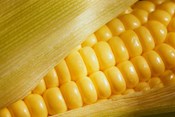Maize was likely domesticated in Mexico around 10,000 years ago, and since then humans have continued to radically alter the plant's genetic makeup.
Two new papers by a consortium of international researchers, including many at Cornell, identify genes that played a role in corn domestication as well as variations and similarities between domesticated maize and its wild relatives.
The results, published June 3 in Nature Genetics, will help breeders and geneticists make further advancements.
Cornell researchers, led by Edward Buckler, a U.S. Department of Agriculture-Agricultural Research Station (USDA-ARS) geneticist in Cornell's Institute for Genomic Diversity and Cornell adjunct professor of plant breeding and genetics, organized the effort. The USDA-ARS and Cornell researchers also led many aspects of the sequencing, statistics and bioinformatics.
In the first paper, a research team led by Doreen Ware, a computational biologist with the USDA-ARS and an adjunct assistant professor at the Cold Spring Harbor Laboratory, used advanced techniques to sequence the entire genomes of domesticated Zea mays corn and a wild maize relative, Tripsacum, a grass from a sister genus that grows and overwinters in the eastern United States.
While Tripsacum has a larger genome, the researchers found tremendous overlap between it and maize, according to the paper. Due to the similarities, "we may be able to combine the natural variation out there for use in breeding and genetics," Buckler said. The findings suggest that such traits as perennialism and frost- and drought-tolerance found in Tripsacum can likely be integrated into maize.
The maize genome -- which is six times larger than the rice genome and almost as large as the human genome -- is mostly composed of repetitious and "junk" DNA. Scientists have debated whether junk regions between genes matter for phenotype and traits. The genetic analysis reported in the paper showed that the junk regions were important for controlling natural variation. "It looks like those repetitive regions of the genome contribute to about 20 to 40 percent of natural variation," said Buckler.
In the second paper, a research team led by Jeffrey Ross-Ibarra, assistant professor in the Department of Plant Sciences and the Genome Center at the University of California-Davis, analyzed the DNA sequence of 75 wild maize, landraces (locally adapted maize types with traits selected over centuries by rural farmers) and improved (scientifically altered) maize lines, and identified the genes underlying maize domestication and evolution.
"We went from a bushy plant with small ears to a robust plant with big ears today adapted to agricultural fields," said Buckler. "It took well over 1,000 genes to go from that adaptation to the current one, and this study helps identify those 1,000 genes."
Identifying those key genes in modern corn allows geneticists and breeders to target them when using natural variation or transgenics to create varieties with new, desirable traits.
The researchers also found that environment plays a big role in determining which genes control traits. For example, genes that control high yield in a temperate climate were found to be very different from genes that control productivity in the tropics.
The research team also included scientists from the University of California-Davis, Beijing Genomics Institute, Cold Spring Harbor Laboratory, Arizona State University, University of Wisconsin-Madison, University of Minnesota and the University of Missouri.
The studies were funded by the National Science Foundation, USDA, Chinese Ministry of Agriculture, Shenzhen Municipal Government, and U.S. Department of Energy.




